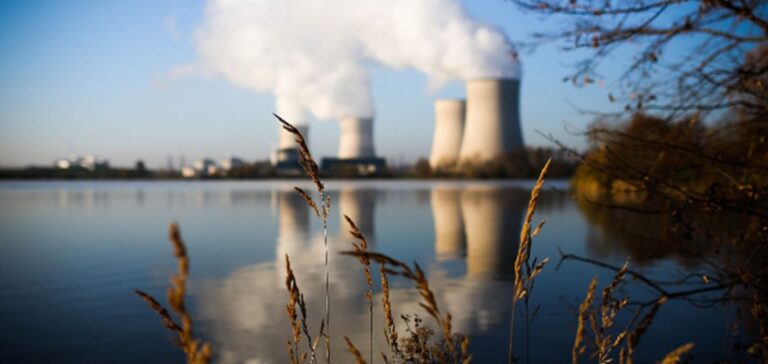The merger of France’s two nuclear safety institutions “will bring lasting disruption to the system”, reacted the trade unions of the Institut de Radioprotection et Sûreté Nucléaire (IRSN) on Thursday, the day after the Elysée announced the relaunch of the project.
Controversial nuclear reform: unions warn of potential consequences
“The government has still not justified its project”, and conversely has not “identified” its risks and consequences, stress the CFDT, CGT and CFE-CGC unions in a press release.
A Nuclear Policy Council convened by Emmanuel Macron relaunched plans to merge the ASN and IRSN, after an initial attempt was rejected by Parliament in April. The Elysée cites a report produced by two elected members of Opecst (Office parlementaire des choix scientifiques), which concludes that it is necessary to merge the two institutions in view of the expected increase in workload with the revival of the atom.
But for the inter-union group, this report “partial, biased and irrelevant (…) cannot serve as a basis for launching a reform of such scope, unless one considers that this reform is above all political”.
“This reform, undertaken at a time when IRSN and ASN employees have already been working for several months on the nuclear revival program, will cause lasting disruption to the system and lead to resignations,” she warns. “No one can believe that a reform on this scale will lead to a new operational organization in one year”, she adds, referring to the Opecst report’s wish to complete the reform by the end of 2024.
Employee representatives list other risks: disorganization of safety expertise for national defense installations, inability to participate in major research projects, disappearance of commercial activities, loss of transparency… Finally, they expressed alarm at the fate of the Institute’s employees, who would be left “in the lurch”, calling on “employees of IRSN, ASN, the nuclear industry, researchers, citizens and members of parliament to strongly oppose this project”.





















